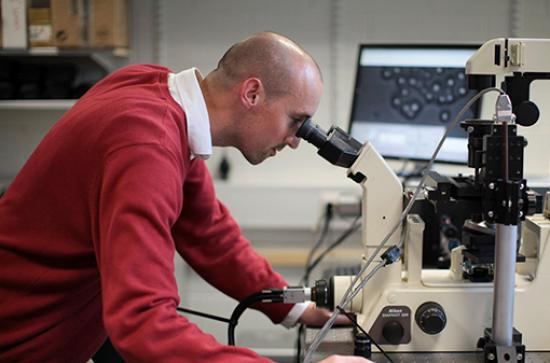
Fully Funded PhD Position in the Area of Coherent Raman Spectroscopy/Microscopy for Biomedical Applications at the Department of Electronic Engineering Maynooth University, Ireland
The Department of superposition Electronic Engineering at Maynooth University is pleased to announce that 1 PhD studentship is available with the start date of early 2021 in the area of Coherent Raman spectroscopy/microscopy for biomedical applications.
Open position
1 PhD Studentship in Biomedical Engineering/Photonics/Optics/Optical physics
Location Department of Electronic Engineering, Maynooth University
Duration 4 Years
Funding / Stipend: The PhD position is funded for 4 years, including a monthly stipend and a travel budget to present at international conferences, workshops and seminars. The studentship will cover fees and a stipend of € 18,500 per annum.
Contact Dr Bryan Hennelly [email protected]
Closing Date Friday 29th Jan 2021
General Research Theme of the PhD Projects
The objective of this project is to design, build, and test a proof-of-concept label-free flow-cytometer based on the current state-of-the-art for high-speed broadband coherent spectroscopy. Flow cytometry has become a cornerstone in clinical diagnostics, and a powerful discovery tool in biotechnology; research applications include immunology, stem cell research, and apoptosis, and clinical applications include phenotyping, immuno-oncology, and organ transplant. The pharmaceutical industry uses flow cytometry for drug discovery and in vitro toxicity testing. All these various applications require a fluorophore that selectively binds to an antibody that is unique to the target cell. The fact that a fluorophore molecule must be tailored to each application is a limitation. This proposed project aims to develop a label-free flow cytometry approach that replaces the fluorescence module in the traditional flow cytometer with a highspeed broadband CARS system, capable of classifying cells based on subtle differences in their biochemical composition. This project aims to replace the fluorescence module in flow cytometry with a coherent Raman spectroscopy system. Raman spectroscopy is a powerful technique for the identification, classification, and diagnosis of cancer cells and tissues and is based on the inelastic scattering of light that occurs when incident laser photons interact with molecular bonds in the sample (usually positioned on microscope), resulting in emitted photons of a different energy and colour. The slow acquisition times of Raman spectroscopy can be overcome using coherent Raman scattering, a class of third‐order nonlinear optical spectroscopies that employ a sequence of light pulses to set up a vibrational coherence within the ensemble of molecules inside the laser focus; this enhances the Raman response by several orders of magnitude allowing for much faster acquisition. The project is based on a recently proposed form of coherent Raman spectroscopy known as Broadband Coherent Raman Spectroscopy and we are working closely with an inventor of this technology. The work will potentially broaden the range of new applications of flow cytometry in both clinical and biotechnology research. The two PhD projects will focus on the development and optimisation of the Broadband CARS microscopy/cytometry platform, the development of a high-speed numerical processing pipeline to classify the cells, and the design of a flow-cytometry module for down-stream sorting.
PhD Studentship
The PhD position is funded for 4 years, including a monthly stipend and a travel budget to present the research outputs at international conferences, workshops and seminars. The studentship will cover fees and a stipend of € 18,500 per annum. The successful candidate will be enrolled on the PhD programme in the Department of Electronic Engineering at Maynooth University. The successful candidate will write their thesis on topics related to Broadband Coherent Raman Spectroscopy for rapid cellular classification and integration with flow-cytometry, supervised by Dr Bryan Hennelly for the entire duration of their PhD programme.
The successful candidate will be an integral part of the overall research programme that Dr Hennelly is leading around the topic of biomedical microscopy and spectroscopy. The successful candidate will be prepared to work with Dr Hennelly’s network of collaborators who are among the leading scholars working on state of the art technologies in biology, imaging, spectroscopy, and mathematics.
In addition to PhD supervision, the successful candidate, where relevant, will benefit from a wide range of training activities, namely, a range of modules for transferable skills such as research integrity, research management, entrepreneurship, patents, etc. The student may also benefit from summer/winter schools and an overseas research visit to our collaborators in the US and UK.
The successful candidate will be supported to present their research findings at major international conferences, workshops and seminars within the scope of their research projects.
Duties and Responsibilities
Undertake postgraduate research in the area of agreed research project.
Work closely with the academic supervisor to ensure that the progress of the individual project is in line with the objectives of Dr Hennelly’s research programme.
Work effectively within a multidisciplinary environment that includes biologists and mathematicians.
Attend and participate in all training events and supervisory meetings.
Prepare PhD progress reports.
Present and publish research outputs to both academic and non-academic audiences.
Attend and participate in academic and non-academic conferences, events and seminars.
Contribute to teaching/training of undergraduate and postgraduate project students working with Dr. Hennelly’s group.
As the description of the duties and responsibilities cannot be exhaustive, it is worth mentioning that the PhD student may be required to undertake other duties that are broadly in line with the objectives of their research projects.
Qualifications, Expected Skills and Competencies
PhD applicants must hold at least a first or upper second-class honours Bachelor’s or Master’s degree in Electrical, Electronic Engineering, Physics, Biomedical Engineering, Optics, or a related discipline.
Excellent background in physics/optics/mathematics/signal processing.
An aptitude for experimental work with optics/electronics.
Strong mathematical, analytical and programming skills.
Highly proficient English language skills.
Excellent written and verbal communication, including presentation skills.
Excellent organisational skills, attention to detail and the ability to meet deadlines.
Ability to think logically, create solutions and make informed decisions.
Willingness to work collaboratively in a research environment.
A strong commitment to their own continuous professional development.
